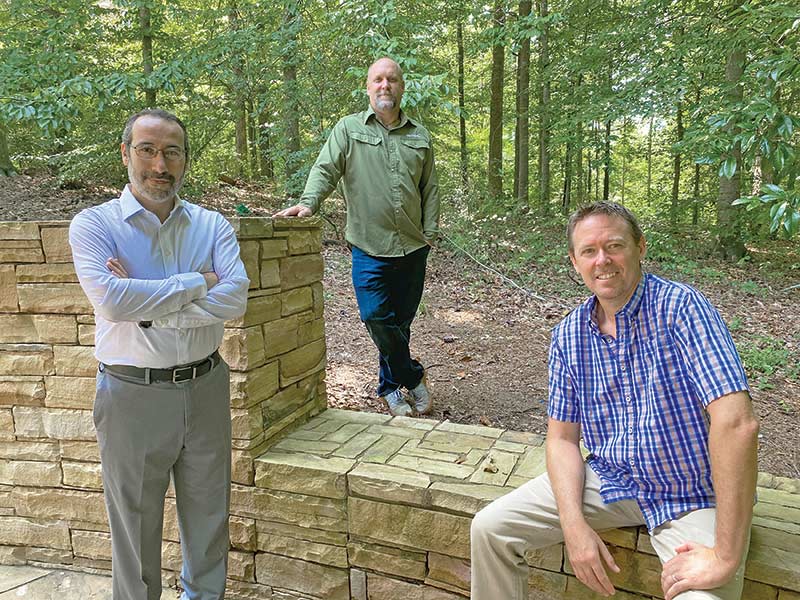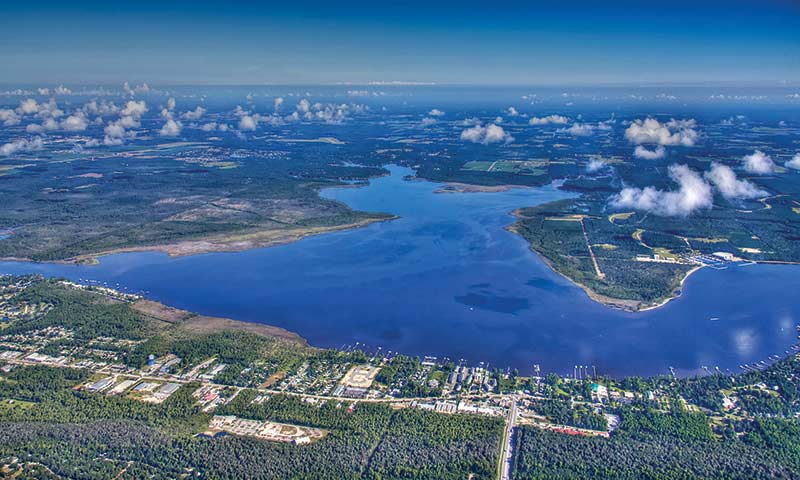Protecting our landscape for the future

Article body
The widespread destruction left by Hurricane Michael in 2018 significantly changed the middle region of the Florida Panhandle, and it spurred an Auburn researcher to extensively study the effects of the altered landscape and develop management tools to help preserve and protect the area’s future water quality and aesthetics.
Dr. Chris Anderson, an associate professor of wetland ecology in the School of Forestry and Wildlife Sciences, leads a team of other Auburn scientists and colleagues from the University of South Alabama and the University of Georgia in a multi-year study of the watersheds along the Gulf Coast from Alabama, across Florida’s Panhandle and into Georgia.
The multi-disciplinary team represents a combination of ecological, climate and hydrological scientists working with social scientists to understand how future stakeholder land decisions may contribute to changes in land use and eventually to coastal water quality. Focusing on watershed drainages from Perdido Bay in Alabama, to St. Andrews Bay in Florida, the project is extensive in its scope.
“We targeted this region because it affects parts of Alabama, Florida and Georgia,” Anderson said. “We are looking at drainages that include much of the coastal counties of Alabama and west-Florida where large-scale land use changes are occurring and where events have happened to reduce forest cover in the region. All of this can eventually affect the coastal water quality in an area that is known for its clean, beautiful beaches and healthy bays. The primary goal of our project is to determine future land use trends and utilize existing models to predict and identify threats to coastal water quality. This project will ultimately generate information that can be used to plan, protect and preserve these coastal gems.”
The designated study area, though there are some urban centers along the coast, has historically been heavily rural and forested, Anderson said. This project seeks to understand how climate and various socio-economic factors may change forest landowner decisions and ultimately reduce forest cover along the Gulf of Mexico.
“Using 10 regional watersheds along the northern Gulf of Mexico, we seek to understand the extent of future forest loss and how it may alter drainage patterns and water quality to estuaries and their associated communities along the coast,” Anderson said.
The project is funded by a National Academy of Sciences, Engineering and Medicine grant through their Gulf Research-Healthy Ecosystems Program. Anderson is joined in this project by fellow Auburn researchers Dr. Kelly Dunning, Dr. Latif Kalin, Dr. Wayde Morse, Dr. Richard Hall and Dr. Sanjiv Kumar; University of South Alabama researcher Dr. John Lehrter; and Dr. Puneet Dwivedi of the University of Georgia. The study is intended to produce an extensive planning and analysis tool that will be developed in partnership with various state and local government planners, the forest and agriculture industry and others involved and interested in preserving the water quality of the region.



